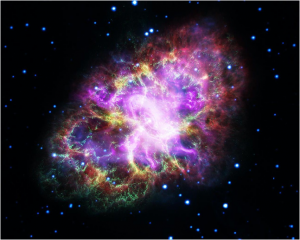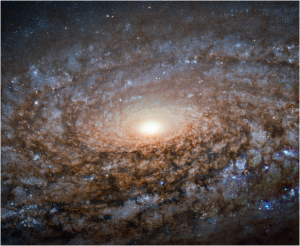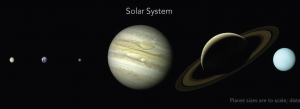Hawking, Time, Choice and God in Construction and Create and the Creator
 174th 68th 183rd pages Choice and God in Construction and Create and the Creator
174th 68th 183rd pages Choice and God in Construction and Create and the Creator
These discussions commemorate the passing of Professor Stephen William Hawking, age 76, on ‘pi day’ 2018, late of Cambridge, England. They are extracts of a letter sent in 2003 to the Professor reviewing portions of his book, A Brief History of Time.
John Choate of Connecticut
January, 2003
Stephen Hawking, Professor
c/o Centre for Mathematical Sciences
University of Cambridge
Wilberforce Road
Cambridge CB30WA England
<s.w.hawking@damtp.cam.ac.uk
A Brief History of Time, 1988 Bantam Books, Dell
Professor Hawking,
You observe (page 174) whether there was choice when God constructed the Universe? You ask whether God breathed fire into the equation? You discuss (pages 68 and 183) annihilation. And to what purpose?
Hear a prophet’s voice1
“I want to reason on the spirit of man; for I am dwelling on the body and spirit of man – on the subject of the dead. I tak my ring from my finger and liken it unto the mind of man – the immortal part, because it has no beginning. Suppose you cut it in two; then it has a beginning and an end; but join it again, and it continues one eternal round. So with the spirit of man. As the Lord liveth, if it had a beginning, it will have an end. All the fools and learned and wise men from the beginning of creation, who say that the spirit of man had a beginning, prove that it must have an end; and if that doctrine is true, then the doctrine of annihilation would be true. But if I am right, I might with boldness proclaim from the house-tops that God never had the power to create the spirit of man at all. God himself could not create himself.
“Intelligence is eternal and exists upon a self-existent principle. It is a spirit from age to age, and there is no creation about it. All the minds and spirits that God ever sent into the world are susceptible of enlargement.
“The first principles of man are self-existent with God. God himself, finding he was in the midst of spirits and glory, because he was more intelligent, saw proper to institute laws whereby the rest could have a privilege to advance like himself. The relationship we have with God places us in a situation to advance in knowledge. He has power to institute laws to instruct the weaker intelligences, that they may be exalted with himself, so that they might have one glory upon another, and all that knowledge, power, glory and intelligence, which is requisite in order to save them in the world of spirits.
“This is good doctrine. It tastes good. I can taste the principles of eternal life, and so can you. They are given to me by the revelations of Jesus Christ; and I know that when I tell you these words of eternal life as they are given to me, you taste them, and I know that you believe them. You say honey is sweet, and so do I. I can also taste the spirit of eternal life. I know it is good; and when I tell you of these things which were given me by inspiration of the Holy Spirit, you are bound to receive them as sweet, and rejoice more and more. Teachings of the Prophet Joseph Smith, p. 354, circa 1844.[1]
 I liken the power to advance knowledge in music to the creation of the Universe. We are always moving toward more organization in music. As the centuries advance, more music is composed. Their scores are preserved. More tunes are written, with rhythm, new arrangements. In essence, more knowledge is being acquired. Do we imagine that someday all music will be composed? All combinations of rhythm, notes, harmony, pitch, volume, and lyrics will be exhausted? I don’t think so. And if we cannot finish off music in an eternity, how can we exhaust the creation?
I liken the power to advance knowledge in music to the creation of the Universe. We are always moving toward more organization in music. As the centuries advance, more music is composed. Their scores are preserved. More tunes are written, with rhythm, new arrangements. In essence, more knowledge is being acquired. Do we imagine that someday all music will be composed? All combinations of rhythm, notes, harmony, pitch, volume, and lyrics will be exhausted? I don’t think so. And if we cannot finish off music in an eternity, how can we exhaust the creation?
174th page Create the Creator
You ask (page 174) whether God exists, whether a creator was needed, and if so, who created the Creator? Yes, God(s) exist(s).
“I learned a testimony concerning Abraham, and he reasoned concerning the God of heaven. “In order to do that,” said he, “suppose we have two facts: that supposes another fact may exist – two men on the earth, one wiser than the other, would logically show that another who is wiser than the wisest may exist. Intelligences exist one above another, so that there is no end to them.”
“If Abraham reasoned thus – If Jesus Christ was the Son of God, and John discovered that God the Father of Jesus Christ had a Father, you may suppose that He had a Father also. Where was there ever a son without a father? And where was there ever a father without first being a son? Whenever did a tree or anything spring into existence without a progenitor? And everything comes in this way. Paul says that which is earthly is in the likeness of that heavenly, Hence if Jesus had a father, can we note believe that He had a Father also? I despise the idea of being scared to death at such a doctrine, for the Bible is full of it.
“I want you to pay particular attention to what I am saying. Jesus said that the Father wrought precisely in the same way as His Father had done before Him. As the Father had done before? He laid down His life, and took it up the same as His father had done before. He did as He was sent, to lay down His life and take it up again; and then was committed unto Him the keys. I know it is good reasoning.” Teachings of the Prophet Joseph Smith, p. 373, circa 1844.
 Professor Hawking’s mother was Scottish. His grandfather was James Walker born Glasgow and son of Archibald Walker Jr. and Janet Audrey Margaret Morris. Archibald was the son of Archibald Walker Sr. and Isobel McIntyre Ewing. Janet was the daughter of William John Morris and Margaret McGregor. Hawking’s mother’s mother was Elisabeth Agnes “Nancy” Stevenson Law, born Glasgow, and daughter of Andrew Law and Agnes Stevenson. Agnes was the daughter of Robert Stevenson who was married 6 August 1852 in Melrose, Roxburgh, Scotland to Isabella Hyslop.
Professor Hawking’s mother was Scottish. His grandfather was James Walker born Glasgow and son of Archibald Walker Jr. and Janet Audrey Margaret Morris. Archibald was the son of Archibald Walker Sr. and Isobel McIntyre Ewing. Janet was the daughter of William John Morris and Margaret McGregor. Hawking’s mother’s mother was Elisabeth Agnes “Nancy” Stevenson Law, born Glasgow, and daughter of Andrew Law and Agnes Stevenson. Agnes was the daughter of Robert Stevenson who was married 6 August 1852 in Melrose, Roxburgh, Scotland to Isabella Hyslop.
Stephen William Hawking, born 8 January, 1942 in Oxford, Oxfordshire, England, U.K. Deceased: 14 March, 2018 ‘pi day, 3.14,’ in Cambridge, England, U.K.
Cosmic images
https://www.jpl.nasa.gov/spaceimages/wallpaper.php
[1] https://www.lds.org/ensign/1971/04/the-king-follett-sermon?lang=eng
Disclaimer: The author of each article published on this web site owns his or her own words. The opinions, beliefs and viewpoints expressed by the various authors and forum participants on this site do not necessarily reflect the opinions, beliefs and viewpoints of Utah Standard News or official policies of the USN and may actually reflect positions that USN actively opposes.
Utah Standard News depends on the support of readers like you.
Good Journalism requires time, expertise, passion and money. We know you appreciate the coverage here. Please help us to continue as an alternative news website by becoming a subscriber or making a donation. To learn more about our subscription options or make a donation, click here.
To Advertise on UtahStandardNews.com, please contact us at: ed@utahstandardnews.com.


Comments - No Responses to “Hawking, Time, Choice and God in Construction and Create and the Creator”
Sure is empty down here...